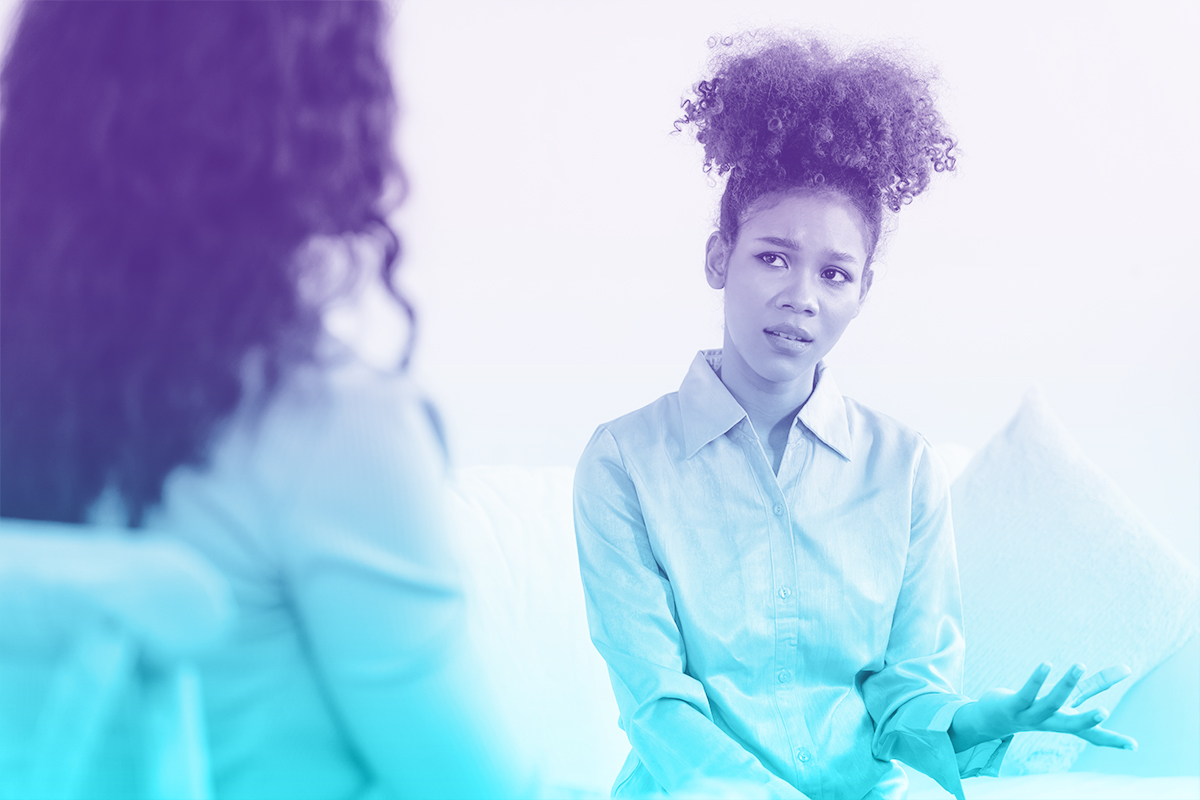Get Clean! Call us today!
Depression Treatment
“Depression is living in a body that fights to survive, with a mind that tries to die.” – Unknown
Those living with depression know just how daunting it can be. It feels impossible to pull yourself out of the depths of despair, making it beyond difficult to even function. Hope feels like a lost cause and you wonder if it will ever end.
Many turn to substances to try and stop these feelings from occurring, but in the end, it just makes things worse. This is why we have dedicated ourselves to dual diagnosis treatment here at Clean Recovery Centers. Our team treats you with respect and compassion while helping you heal from depression. Check out our program below.

What We Treat: Depressive Disorders
Depression is a mental health condition that affects millions of Americans every year. It is characterized by feelings of intense sadness, loss of interest, and physical discomfort. There are different forms of depression that can be caused by environmental factors. Here at Clean Recovery Centers, we are experts in treating mental health conditions like depression. We are also specialists in substance use disorder, which often goes hand-in-hand with mental health.
How We Treat the Complexities of Depression at Clean Recovery Centers
At Clean Recovery Centers, we utilize a three-phase approach to addiction and mental health treatment. Those looking for depression treatment will usually start in phase II, called action. Here you will stay onsite with us in the residential II program. You will dive into various therapies that cover trauma resolution, identity reconstruction, cognitive self-management, and personal growth development. We will work with you to develop healthy coping skills and heal the trauma that led to depression.
Once residential II is complete or when your care team sees fit, you will transition to our partial hospitalization program (PHP). You will continue to build on what you have learned and keep progressing to managing your depression. PHP is the last part of phase II
Maintenance is phase III of our program and consists of intensive outpatient programming (IOP) and outpatient services. These programs help you transition back into your home life while still providing support and therapies. They vary in length and frequency, depending on your care team.
Those living with substance use disorder and depression are welcome at Clean Recovery Centers. Phase I of treatment is called preparation and includes a medical detox and residential I stay. Our team will work with you in treating both depression and substance use and will adjust your path as needed.

Understanding the Types of Depression and Depressive Disorders
Depression can be caused by genetics, however, there is no set gene that will cause the condition. Depression symptoms can fluctuate and be triggered by different environmental factors. This can vary by the type of depression or depressive disorder the person is experiencing. Common types of depression include:
Major depressive disorder (MDD): MDD is characterized by feeling symptoms of depression and loss of interest for at least two weeks. These feelings tend to interfere with everyday tasks. Stress, trauma, and sudden changes in life can trigger depressive episodes.
Postpartum depression: Depression sets in after having a baby. Postpartum depression can stem from hormonal changes, changes in appearance, and adapting to life with a newborn. While feeling mood shifts is normal the first few days after having a baby, postpartum depression symptoms often last for weeks.
Seasonal depression: Depression symptoms occur during certain times of the year. Most often, seasonal depression occurs during times of the year when there is not a lot of sunlight. This causes a lack of vitamin D, which can trigger depression.
Persistent depressive disorder: Depression symptoms are less severe than MDD. However, the symptoms are persistent, lasting up to two years.
How Common Is Depression in Adults?
Depression is widely prominent throughout the United States. According to the Centers for Disease Control (CDC), 5% of adults aged 18 and older regularly had feelings of depression in 2023. This translates to over 16 million people. In 2022, the age-adjusted rate per 100,000 for hospitalizations involving mood and depressive disorders was 455.1 in Florida, and 266 in Hillsborough County. These statistics show the relevance of depression and how important it is to have treatment options available.
Causes of Depression: Who Is at Risk?
Depression can affect anyone no matter their age, gender, or location. Women are more likely to experience depression than men, however, men are less likely to report depression due to stigma. Other risk factors for depression include:
- Having a family history of depression
- Partaking in substance use
- Experiencing childhood trauma such as abuse, neglect, or poverty
- Experiencing a sudden, negative life change
These factors do not guarantee the development of depression, but they do increase the risk tenfold. When it comes to taking substances, depression can be symbiotic. The person may be taking substances to self-medicate their depression or the substances lead to symptoms of depression.
Depression Symptoms: When Should I Be Concerned?
Symptoms of depression include:
- Persistent sadness or hopelessness
- Feelings of guilt or shame
- Losing interest in activities or hobbies
- Mood swings including irritability and restlessness
- Increased fatigue and lack of energy
- Difficulty concentrating
- Changes in appetite and weight
- Aches and pains
- Thoughts of self-harm or suicide
These symptoms range from mild to severe, meaning each one is on a sliding scale. Fatigue can be mild where the person is just tired or it can be severe where they can’t make it out of bed. When depression symptoms begin to make it difficult or near impossible to accomplish tasks, it is time to talk to a doctor. Depression is treatable through different methods. If thoughts of self-harm or suicide occur, seek medical attention immediately. 988 is the national crisis hotline that can help with resources during a depression crisis.
How Depression Is Diagnosed
An official depression diagnosis must come from a medical professional. The process begins with a physical and psychological assessment. The physical exam is to rule out any conditions that may be triggering depression. The medical team will compile the list of symptoms and frequency they occur to come up with a proper diagnosis. Once depression is diagnosed, the discussion of treatment options will follow. This can include therapies, medication, or a combination of options.

Is Depression Different From Sadness or Grief?
Sadness and grief are very real emotions that can cause depression-like symptoms. However, they are brought on by specific events or experiences. Essentially, grief and sadness come in waves, washing over the person for moments and then fading in time. Depression symptoms are constant and while they can be triggered, they often occur no matter the situation. Grief and depression can occur for long periods and require therapy, but they are not interchangeable.
Depression Treatment Options in Tampa, FL
Depression can make you feel as if life is trying to pass you by without your consent. The good news is this doesn’t have to be permanent, depression is treatable and manageable. Mental health treatment programs like the one at Clean Recovery Centers are specially designed to address the causes of depression and work toward a brighter future. Our compassionate team will work with you to find what therapy combinations work best for your healing.
If you or someone you love is managing depression or turning to substances to self-medicate, our team is here for you. Clean Recovery Centers is a leading provider of addiction and mental health treatment here on the Gulf Coast. We offer housing at each of our locations, so there is no stress about where you will stay. Call us today at (888) 330-2532 to learn more about our depression program offerings.
Get clean. Live clean. Stay clean.
FAQs About Depression Treatment
Is depression chronic?
Depression is a chronic condition, but it can be managed with medication, therapy, or a combination of both.
Can depression be treated without medication?
Yes, depression can be treated through therapies and coping skill development.
Is there a cure for depression?
There is no cure for depression but there are numerous treatment combinations available to manage the condition.
